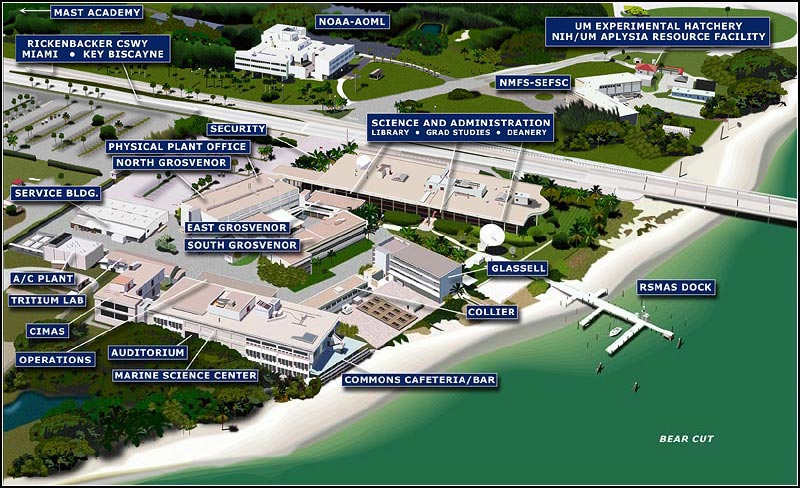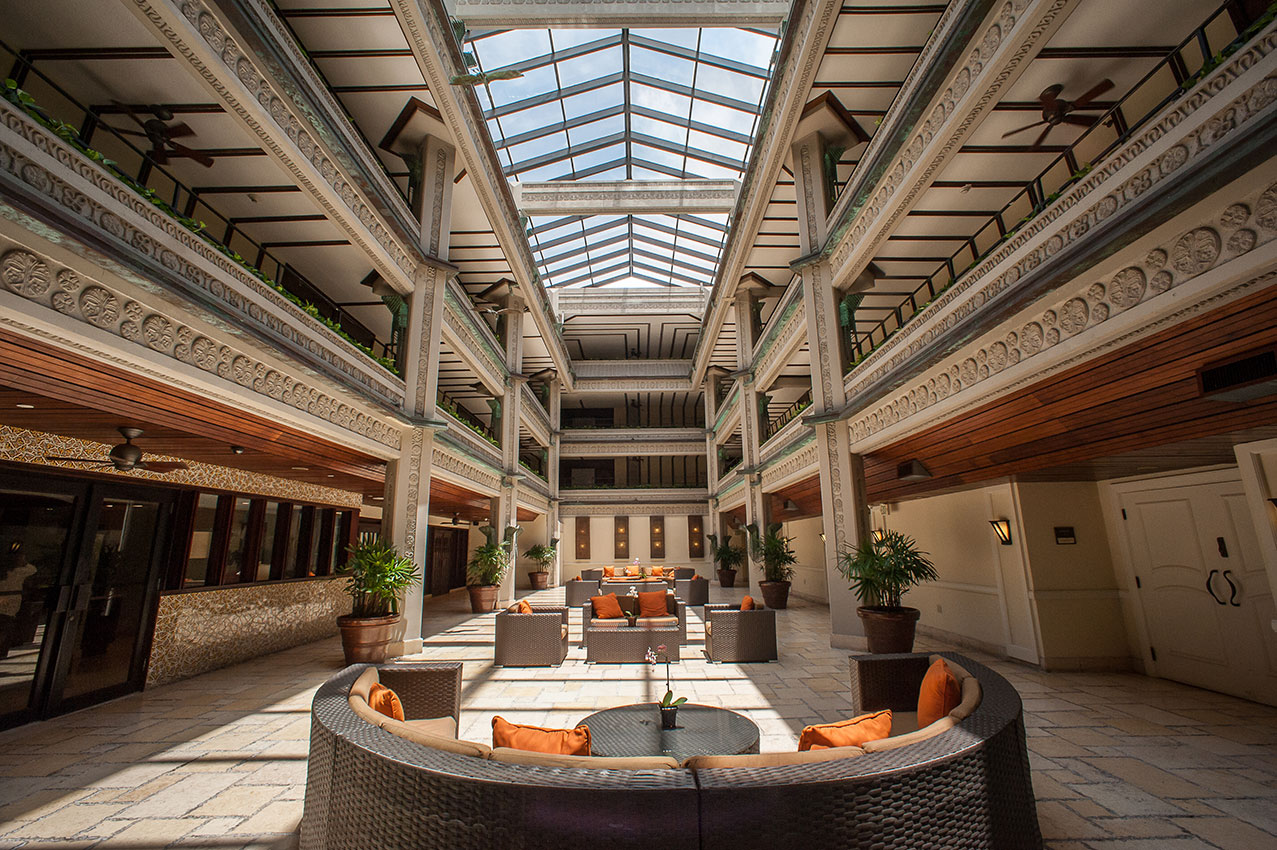NASA Time-Resolved Observations of Precipitation structure and storm Intensity with a Constellation of Smallsats (TROPICS)
2nd APPLICATIONS WORKSHOP
February 19th to February 20th, 2020
University of Miami Rosenstiel School of Marine & Atmospheric Science | 4600 Rickenbacker Causeway | RSMAS Auditorium
Primary Contacts
- Dr. Jason Dunion: jason.dunion@noaa.gov
- Dr. Emily Berndt: emily.b.berndt@nasa.gov
Meeting Objectives
- Review TROPICS data applications in the Applied Science Program elements as well as outcomes from the 2017 Applications Workshop,
- Review mission specifications and status including updates from the DAAC, expected algorithms, and Cal/val plans,
- Provide an opportunity for the early adopter community to share results with proxy data, communicate challenges, successes, and future needs to the Science Team,
- Identify technical and visualization needs that can be addressed by the science and applications community (e.g., data assimilation, Level 3/Level 4 products, visualization tools) to accelerate broad utilization of TROPICS data post launch,
- Engage potential early adopters from private and commercial industry and provide a forum to identify their applications, needs, and potential use of TROPICS data.
Download a copy of the Agenda
Remote Participation Via Go-to-Meeting: https://www2.gotomeeting.com/join/151354330
Tuesday, February 18
6:00p – 7:30p | Optional Cocktail Hour at Above Mayfair
Wednesday, February 19
7:15a | UM shuttle departs Mayfair Hotel & Spa for UM/RSMAS
7:30a – 8:00a | Registration/Light Refreshments
8:00a – 8:05a | Welcome and Logistics, Jason Dunion, University of Miami/CIMAS – NOAA/AOML/HRD
8:05a – 8:10a | UM Welcome, Dr. Benjamin Kirtman, Director, University of Miami-CIMAS
8:10a – 8:15a | Summary of Workshop Objectives, Emily Berndt, Deputy Program Applications Lead TROPICS, NASA/MSFC
8:15a – 8:30a | NASA HQ and Applied Sciences Welcome, John Murray, Associate Program Manager, Disasters, NASA Applied Sciences
8:30a – 9:00a | TROPICS Mission Overview and Status, William Blackwell, TROPICS Principal Investigator, Massachusetts Institute of Technology, Lincoln Laboratory
Proxy Data Presentations: (Session Chair: William Blackwell)
9:00a – 9:15a | Tropics Proxy Data, Vince Leslie, MIT Lincoln Laboratory
9:15a – 9:30a | Impact of Passive MW Data in the ECMWF System and Experience with MWHS-2 , Niels Bormann, ECMWF
9:30a – 9:45a | Exploring TC Structure and Rainfall with TROPICS Proxy Data, Erin Munsell, GSFC/UMD
9:45a – 10:00a | Analysis of the Tropical Cyclone Diurnal Cycle using TROPICS Proxy Data, Erika Duran, UAH / NASA SPoRT
10:00a – 10:15a | Morning Break (registration payment desk will be open)
Application Presentations 1: TC Analysis and Forecasting (Session Chair: Jason Dunion)
10:15a – 10:30a | NHC Perspective, Jack Beven, NOAA/National Hurricane Center
10:30a – 10:45a | JTWC Perspective, James Darlow, Joint Typhoon Warning Center
10:45a – 11:00a | HRD Perspective, Hui Christopherson, University of Miami/ CIMAS- NOAA/AOML/HRD
11:00a – 11:15a | Level 2 TROPICS Tropical Cyclone Intensity Products, Derrick Herndon, UW-Madison/CIMSS
11:15a – 11:30p | Using Machine Learning of TC Structure for Rapid Intensification Forecasting, Hui Su, Jet Propulsion Laboratory
11:30a – 12:30p | Lunch at RSMAS Commons: SALT Waterfront Restaurant
Application Presentations 2: Terrestrial/Disasters/Severe Weather (Session Chair: Daniel Vila)
12:30p – 12:45p | TROPICS Precipitation Products, Chris Kidd, NASA GSFC/UMD
12:45p – 1:00p | NASA Disasters Overview, Andrew Molthan. NASA MSFC
1:00p – 1:15p | TROPICS- Potential for Step Change in Operational Hydrology, Ana Barros, Duke University
1:15p – 1:30p | MCS Tracking and Nowcasting, Daniel Vila, Centro de Previsão de Tempo e Estudos Climáticos (CPTEC)/INPE
1:30p – 1:45p | How Do TROPICS Frequencies Respond to Large Hail, Dan Cecil, NASA MSFC & Sarah Bang, NASA NPP
1:45p – 2:00p | Improving Precipitation Retrieval with Brightness Temperature Temporal Variation: Add a Time Dimension, Yalei You, UMD
2:00p – 2:15p | Afternoon Break
Breakout Discussions/Capture End User Perspectives
2:15p – 2:30p | Update on Mission Latency, William Blackwell, MIT Lincoln Laboratory
2:30p – 3:15p | Breakout Discussions #1 Latency (led by session chairs; local scribes)
- Terrestrial/Disasters/Severe Weather
- Tropical Cyclone Analysis/Forecasting
- Tropical Cyclone Modeling and Data Assimilation
3:15p – 3:45p | Breakout Leads Report Out (10 minutes each)
3:45p – 4:30p | Breakout Discussions #2 Products, Visualization, new tools, needs (led by session chairs; local scribes)
- Terrestrial/Disasters/Severe Weather
- Tropical Cyclone Analysis/Forecasting
- Tropical Cyclone Modeling and Data Assimilation
4:30p – 5:00p | Breakout Leads Report Out (10 minutes each)
5:00p – 5:15p | Wrap up for the day
5:15 – 6:15p | Optional Ice Breaker: RSMAS Commons
6:30p | UM shuttle departs UM/RSMAS for Mayfair Hotel & Spa
Thursday, February 20
7:15a | UM shuttle departs Mayfair Hotel & Spa for UM/RSMAS
7:30a – 8:00a | Registration/Light Refreshments
Application Presentations 3: Tropical Cyclone Modeling and Data Assimilation (Session Chair: Scott Braun)
8:00a – 8:15a | Tropical modeling activities at Météo-France and potential applications of TROPICS data, Philippe Chambon, Météo-France
8:15a – 8:30a | NOAA’s Hurricane Modeling and Data Assimilation Efforts Under the Unified Forecast System Framework, Xuejin Zhang, NOAA/AOML/HRD
8:30a – 8:45a | All-Sky radiance assimilation for COAMPS-TC at NRL, Allen Zhao, NRL Monterey
8:45a – 9:00a | Impact of satellite microwave radiance data assimilation on GEOS atmospheric analysis and forecasts in Tropics, Min-Jeong Kim, NASA GSFC/GMAO
9:00a – 9:15a | Assimilation of satellite radiances and retrieved data products for improved numerical prediction of tropical cyclones: Promises,challenges, and trade-offs, Zhaoxia Pu, University of Utah
Breakout Discussions/Capture End User Perspectives
9:15a – 9:30a | Challenges with SmallSats, Kevin Garrett, NOAA NESDIS
9:30a – 10:15a | Breakout Discussions #3 potential strengths & limitations of integrating smallsats in research and applications (led by session chairs; local scribes)
- Terrestrial/Disasters/Severe Weather
- Tropical Cyclone Analysis/Forecasting
- Tropical Cyclone Modeling and Data Assimilation
10:15a – 10:45a | Breakout Leads Report Out (10 minutes each)
10:45a – 11:00a | Morning Break (registration payment desk will be open)
Synergy with other Missions: (Session Chair: Patrick Duran)
11:00a – 11:15a | Optimizing the Utilization of CYGNSS Wind Observations for Numerical Prediction of Tropical Cyclones, Bachir Annane, University of Miami/CIMAS – NOAA/AOML/HRD
11:15a – 11:30a | Application synergy with JPSS and TROPICS, Mitch Goldberg, NOAA JPSS
11:30a – 11:45a | GOES-R ABI Applications to Hurricanes, Jason Dunion, Univ. of Miami/CIMAS – NOAA/AOML/HRD & Chris Velden, UW Madison-CIMSS
11:45a – 12:00p | GOES-R GLM, Stephanie Stevenson, CIRA/Colorado State University – NOAA/National Hurricane Center
12:00p – 12:15p | Hurricane Intensity and the PMW Constellation, Derrick Herndon, UW-Madison/CIMSS
12:15p – 12:30p | Workshop Final Thoughts /Adjourn Meeting
12:45p | UM shuttle departs UM/RSMAS for Mayfair Hotel & Spa
1:30p – 3:30p | Closed door TROPICS Science Team Meeting: CIMAS Conference Room
3:45p | UM shuttle departs UM/RSMAS for Mayfair Hotel & Spa
DIRECTIONS | PARKING | UM SHUTTLE
TROPICS Workshop location: RSMAS Auditorium (Marine Science Center building)
TRANSPORTATION
1) Taxi from MIA (Miami International Airport) to hotel will be around $30 (before tip). Ride sharing like Uber or Lyft is a comparably priced option.
2) A shuttle will be provided to bring participants each day from the Mayfair Hotel and Spa to UM and back.
Wednesday February 19th
• Morning shuttle: 7:15 am pick-up at the Mayfair Hotel and Spa
• Afternoon shuttle: depart UM/RSMAS for Mayfair Hotel and Spa at 6:15 pm
Thursday February 20th
• Morning shuttle: 7:15 am pick-up at the Mayfair Hotel and Spa
• Afternoon shuttle: depart UM/RSMAS at 1:00 pm for Mayfair Hotel and Spa
Mayfair Hotel and Spa
3000 Florida Ave
Miami, FL 33133



